MBE is back on the winning track
The Honey Badger is back. But not before she endured several on and off days after her September 2013 pre-Kona hope-crushing bike crash that required surgery on her shoulder and collarbone four weeks before race day.
Mary Beth Ellis had stellar years with Coach Brett Sutton in 2011, 2012 and 2013, winning eight Ironman races. She started with a rookie, American and course record 8:43 at Ironman Austria followed by five more course records which included breaking the 20-year women’s mark at Ironman Canada. Her 2013 season included wins at Ironman France and Ironman North America in Mt. Tremblant but all that momentum came to a halt with her bike crash injuries in September.
In 2014, she switched coaches from Sutton to Siri Lindley, partly from a desire to be based in Boulder with her husband Eric Olson. Things started well with a second place at prestigious Ironman Melbourne. But her decision to race short course, high-speed Hy-Vee without any taper left her with glute issues before Ironman 70.3 Worlds where she rode in the top 3 until falling back to an exhausted 5th. But a fade from contention for the podium on the bike at Kona to an exhausted 9th place on the run was dispiriting.
Ellis started decently in 2015 with a 3rd at Challenge Bateman’s Bay and an 8th at St. George 70.3. But sensing that her career held only so many top level years left, she made a decision to change course and return to Brett Sutton. Which meant leaving the comfort of home and daily contact with her husband Eric Olson and hitting the road to Sutton’s training camp in Switzerland.
That make-or-break decision started well with a 2nd place at Challenge Denmark and paid off handsomely in Sweden and left her with the confidence that she is back at the peak of her powers for a return engagement at Kona.
Slowtwitch: Congratulations on a great race in Sweden. How are you feeling? Any lingering soreness?
Mary Beth Ellis: I am feeling great. After any successful race, I think there is an emotional high that makes the soreness not as bad as after a poor race. The race distance [1.5k swim shortened due to cold water – 120k bike – 30k run] is also a bit more forgiving than an Ironman.
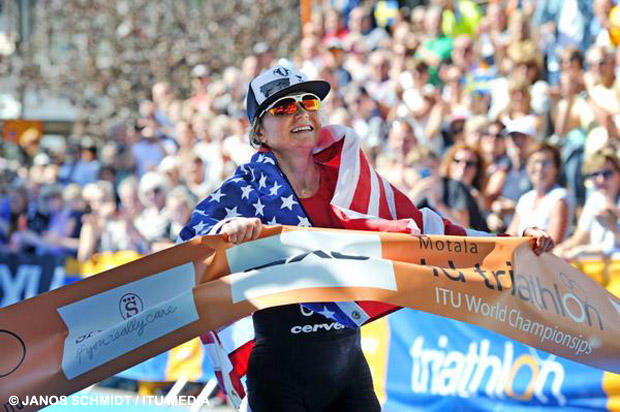
ST: Brett Sutton wrote: “We needed a blow-out effort to see if MBE’s illustrious career was indeed close to the end, or if it was just a temporary blip.” Did you have doubts?
Mary Beth: I think every athlete has doubts and questions at times. We work so hard and to see no validation of all that effort and dedication is tough.
ST: Sutton says now: “The answer to that question was answered emphatically. The Badger has been hibernating, and the way she slew the paper tiger this weekend will have all astute observers adding her to the list of real Kona contenders this year.” Do you think you answered that question in Motala?
Mary Beth: I think Motala was a solid race and showed that I am not too far from my best form of 2012 and 2013. In addition, this was without the full swim course which would have definitely been to my advantage over the other competitors.
ST: With your background – two Ironman 70.3 World Champions silver medals, a string of eight Ironman victories, and last year, despite coming to Mt. Tremblant 70.3 worlds feeling like “a wounded soldier shot in the butt,” you spent a great deal of time in the top 3 before a tight glute on the run left you in 5th place. Wasn't that encouraging after your long recovery from the 2013 pre-Kona bike crash?
Mary Beth: I love racing in Mt. Tremblant and think the course suits me. As a result, I was able to race relatively well since the course is tough and allowed me to bike hard to make up for my compromised run due to the injury.
ST: A very tough day in Kona – not at your best – you still hung tough for a top 10 finish. How discouraged were you?
Mary Beth: I was disappointed in the performance. However, I have a fairly steady nature which means I don't get too high in good times or too low in bad times.
ST: You had a good start at Kona. Then things went south on the run. Were your glutes locked up? And how painful was it?
Mary Beth: I wasn't locked up on the run; I just was depleted and exhausted by mile 8. For me, it quickly turned from racing into a death march of survival over the last two hours.
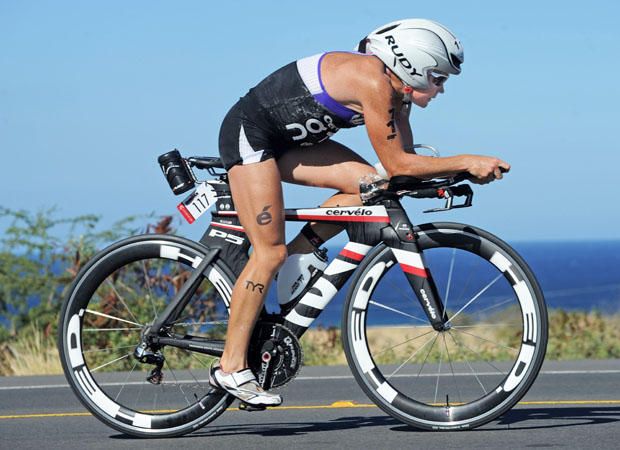
ST: What were the factors you hoped to address with Siri at the beginning of this year?
Mary Beth: Siri is an amazing coach and leader as she has shown producing a bevy of champion athletes. In addition, her attitude and love of the sport are infectious, inspiring her team to get the most out of themselves on a daily basis. When I began with Siri in 2014 [Ellis started her triathlon career with Lindley in 2006 to 2010], we took some risks and changed my training around especially after Ironman Melbourne. For example, in Kona I rode the bike at a higher cadence 86-90 versus 70-77. Likewise in training, I did less volume and more intensity than I had done with Brett.
ST: What happened in 2015?
Mary Beth: I loved coming to training with Siri and her squad every day, but the racing in 2015 was a struggle. With each poor performance, this grueling job became harder to face as all the arduous work and sacrifice seemed for naught.
ST: I know you hold Siri in high esteem and you are thankful for her work with you. Why did you decide to go back to Brett Sutton?
Mary Beth: I ultimately decided to go back to Brett as I was confident that he would be truthful and either get me back racing at my best or tell me to retire.
ST: What do you think working with him in Switzerland made a difference?
Mary Beth: I came to Brett very fit from Siri's program but we needed to make some tweaks to the training. With his mix as well as going back to pushing big gears on the bike, I was able to find my form returning relatively quickly.
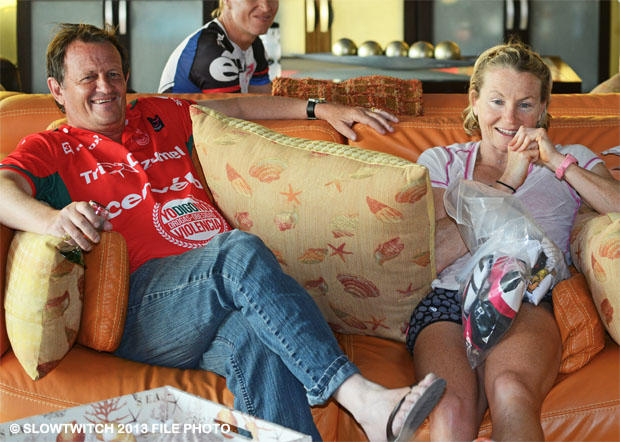
ST: Two weeks prior to ITU Worlds, you finished 2nd at Challenge Denmark, but with a penalty that likely cost you the win. What happened as far as you know?
Mary Beth: I don’t think we need to rehash my incident. I do think my penalty highlights what is a larger problem for both Challenge and WTC which is no consistency in rules from race to race around the world. Both organizations depend on local federation officials and allow them to enforce rules arbitrarily.
ST: What might be cone about this going forward?
Mary Beth: There is a reason that the NFL lockout using replacement referees did not last. Officials matter to the integrity of the game. I would love to see Challenge and the WTC first come up with a global professional rulebook that outlines every rule for any race situation similar to that of the ITU. Secondly, I would love to see Challenge and WTC invest in sending their top officials around the world to train and lead the local teams at each race to ensure the rules in their rulebook are properly and consistently enforced.
ST: So how did you feel coming into ITU long distance Worlds?
Mary Beth: Before any world championship race, there is pressure and doubts. But I felt good and knew I was ready to race.
ST: What did winning that World title mean to you?
Mary Beth: After all the struggles over the past year, it was such a relief to race at my best and win. To execute on the biggest stage at a world championships representing the USA and carrying the American flag across the finish line for the first time in my career was not only a validation of all the hard work but also a childhood dream realized. [Ellis competed in U.S. Olympic trials in swimming, running and triathlon but fell short.]
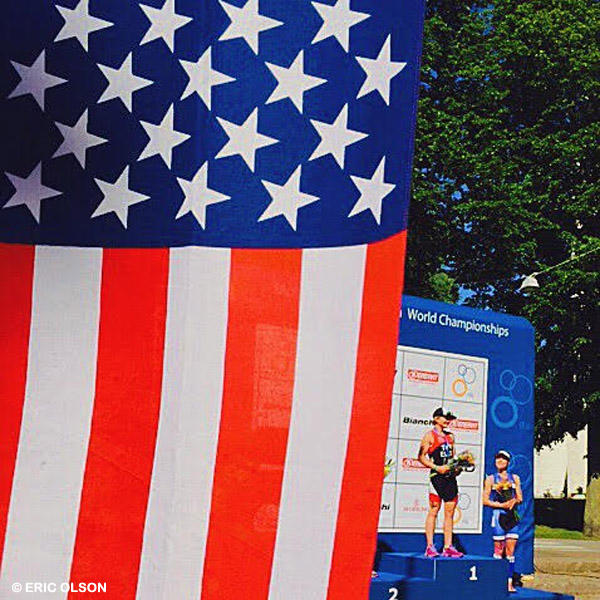
ST: It must have been a bit wrenching to move away from Eric for a while. How did you both manage?
Mary Beth: It is definitely a sacrifice. I am very lucky to have such a supportive husband. In addition, we both know it is for a finite period as I won't race forever.
ST: To be honest, the pre-race form at Motala promised just one 1-A opponent – Camilla Pedersen. How much do you value our win over such a top rated opponent?
Mary Beth: Camilla is a great competitor and was the defending world champion. But I value races based on my own performance. I do think having Camilla chasing me all day helped me to get the best out of myself.
ST: Are all your niggles cured? Are you completely healthy? How has Brett kept you from over work?
Mary Beth: Knock on wood! I was healthy with Siri except the ill-timed glute strain before Mt. Tremblant and that was my own fault for trying to race unrested against the speedy short course specialists at Hy-Vee the previous weekend. Brett and Siri are both excellent at helping work through and manage any issues before they become full-blown injuries.
ST: In the Kona Points Rankings you currently stand 19th place with 5,915 points but not yet validated. Is that on the agenda? And what other races might be part of your Kona prep?
Mary Beth: Yes I will definitely race an Ironman. I am deciding between a few options and hope to race one before the July cutoff. And I will most likely do a few 70.3s. I won't toe the line at Kona without being ready to race. That being said, the focus with be on performing at my best in Kona.
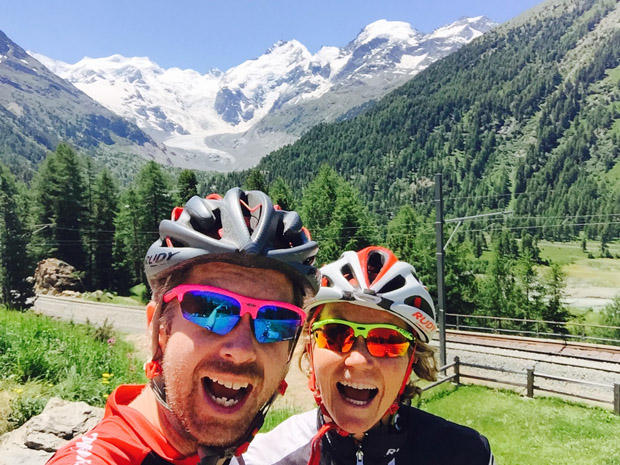
ST: How happy are you at this moment?
Mary Beth: As I said before I don't get too high or too low. But I was smiling at the finish line in Motala which is more than can be said for most of my big wins. I think I am most pleased that Eric was able to come out to the race and is spending the week with me in Switzerland.



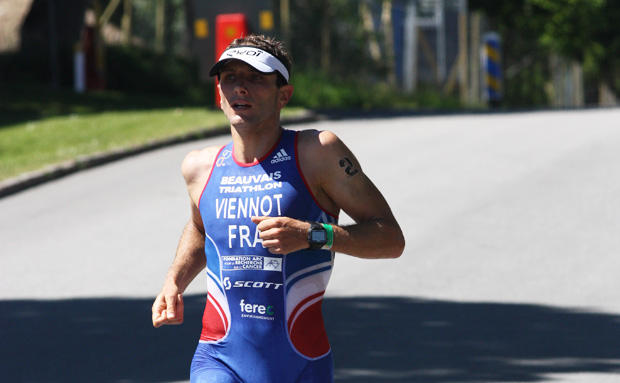
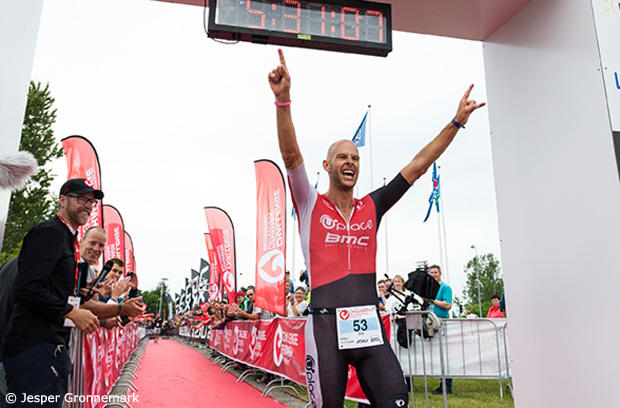
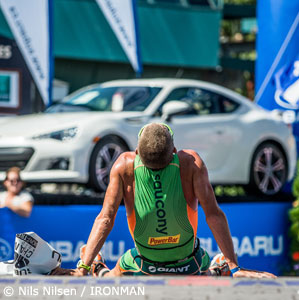
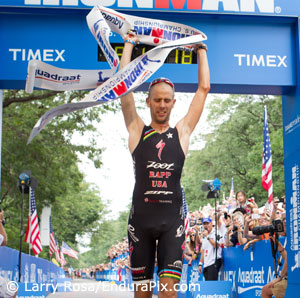
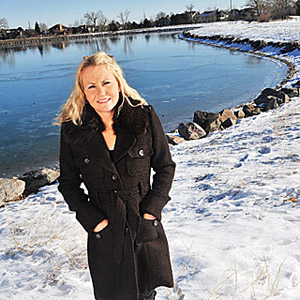
Start the discussion at slowtwitch.northend.network